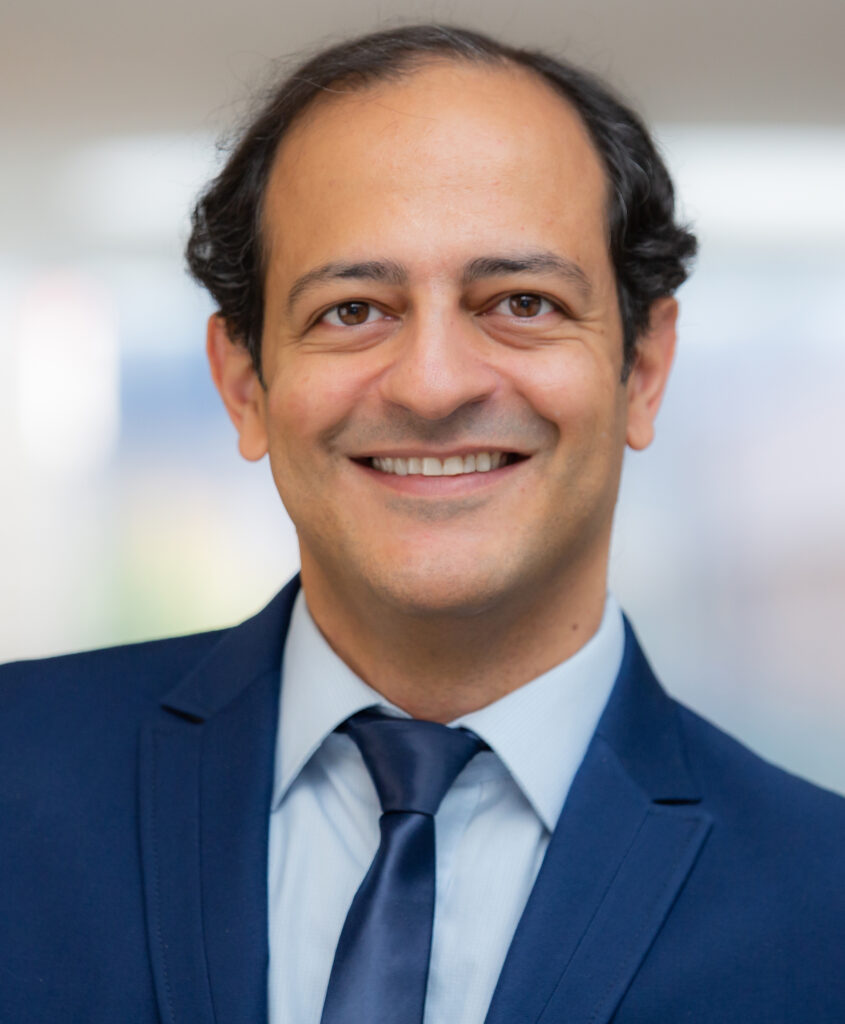Mahdi Cheraghchi receives Vulcans Education Excellence Award

Assoc. Prof. Mahdi Cheraghchi has been awarded the College of Engineering Vulcans Education Excellence Award for 2022-2023 for his demonstrated and sustained excellence in curricular development, and in student instruction and guidance.
Since joining the department in 2019, Cheraghchi has made a large impact on CSE’s course offerings while also focusing on student well-being and mentorship.
A theoretical computer scientist, Cheraghchi has developed two new courses at Michigan: EECS 572 (Randomness and Computation) and EECS 498/598 (Coding Theory for Theoretical Computer Science). He has also re-constructed EECS 574 (Computational Complexity) so that it would be suitable for both graduate students and advanced undergraduates.
Because Cheraghchi teaches mathematics-heavy courses, many students come with strong feelings of self doubt. Cheraghchi is there to meet them with a seemingly endless ability to increase comfort with the material, to modify the presentation of material for different audiences, and to make it as clear and memorable as possible.
One technique he has used to reduce student stress has been to show a five minute video in the middle of almost every lecture, as a small break. These videos are educational and quite fun to watch. He also employs humor whenever he gets a chance, incorporating notions from course material in his jokes.
Additionally, Cheraghchi engages his classes by using real-life visual props or objects that allow his students to gain an understanding of the practical importance of theoretical concepts.
One of his graduate student instructors speaks about Cheraghchi’s ability to make material relatable by saying, “A lot of times I believe students are intimidated by the more math heavy courses in general, but Prof. Cheraghchi has made them accessible to everyone, regardless of their academic background… He also makes certain concepts and ideas that may be intimidating to most, seem simpler, which students appreciate and enjoy more.”
Because of the timing of his hiring, much of Cheraghchi’s teaching has taken place during the Covid pandemic. As a result, he has been a fast mover in finding multiple ways to keep his students engaged and supported. He live-streamed the class over Zoom while also teaching to students in person in the classroom, consistently making sure that all students had the opportunity to be engaged and ask questions. In addition to broadcasting his tablet screen in the classroom and on Zoom, he also set up a live whiteboard site that students could visit during class. This website contained a copy of the whiteboard that could be scrolled up on students’ devices in case they missed something. He maintained dedicated slack channels for his classes, and created a GatherTown room for virtual office hours for those who couldn’t attend in person. He has been active on Piazza, providing detailed and helpful answers to students’ questions.
As an advisor and mentor, Cheraghchi is known for his approachability and compassion, building an environment where students are not afraid to ask questions. Students have recognized this and uniformly say that they feel they can trust him to treat them with respect, whether they were having trouble academically or personally.
One said, “He generously invited me to sit down and talk through what was on my mind. I knew I could trust him, but I was surprised by how caring and tactful he was in handling the situation. Talking with him brought me a great deal of comfort, and I felt much better afterward… He even followed up with me over email to check in and see how I was doing.”
Another said, “I want to emphasize that Mahdi is a significant reason why I am here today pursuing a PhD in theoretical machine learning. For students like me with non-traditional backgrounds trying to break into theory research, Mahdi’s kindness, open-mindedness, and enthusiasm, as an instructor and advisor, make all the difference.”
Cheraghchi’s research interests are in theoretical computer science, especially the role of information and coding theory in cryptography, complexity, algorithms, and high-dimensional geometry. He holds a PhD in Computer Science from the Swiss Federal Institute of Technology (EPFL). He joined the faculty at Michigan in 2019 after serving on the faculty at Imperial College London. He is a senior member of the ACM and of IEEE and a recipient of the NSF CAREER award.
 MENU
MENU 
